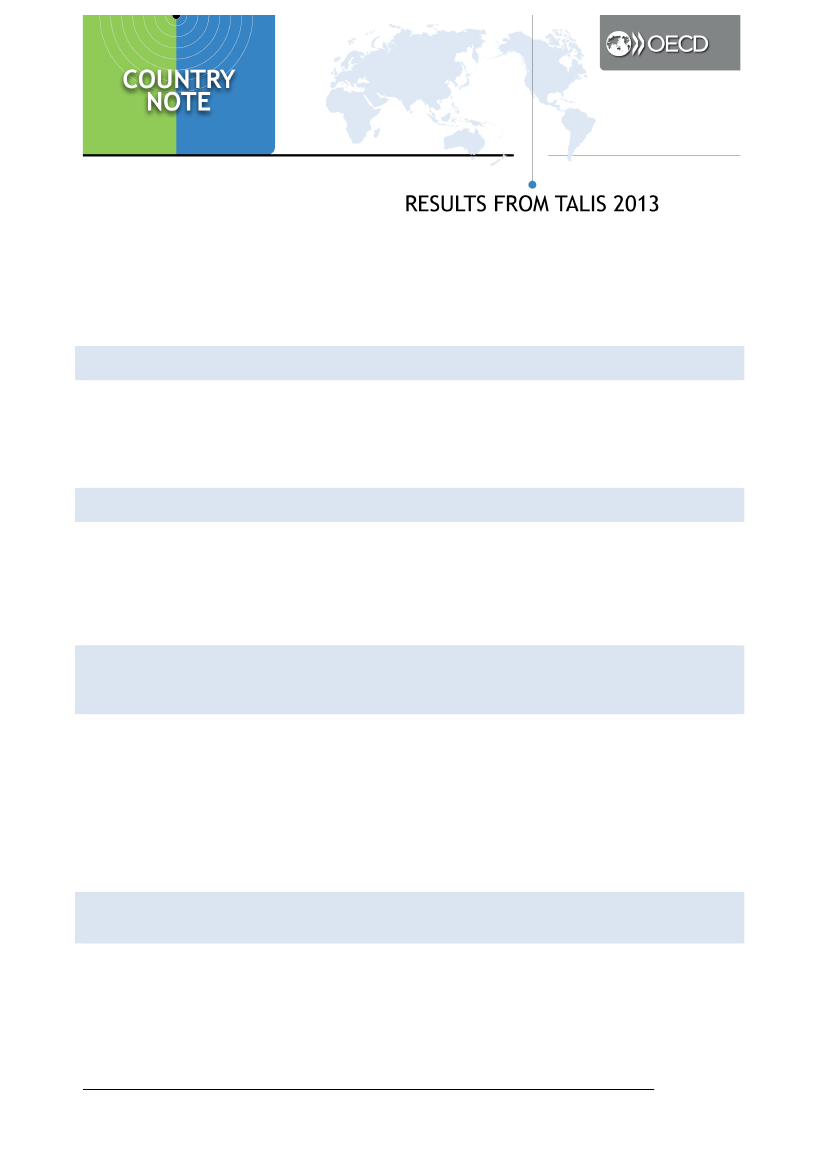
DENMARK
Key Findings from the Teaching and Learning International Survey (TALIS)
1
Teachers in Denmark have high levels of job satisfaction
•
In Denmark, 95% of lower secondary teachers enjoy working at their current school, slightly more than
the average of 90% across the countries that participated in TALIS. A similar number of lower
secondary teachers in Denmark also report being satisfied with their job overall.
As in most other countries, a large majority of lower secondary teachers in Denmark do not perceive
the teaching profession as being valued in society. However, 9 in 10 agree that the advantages of
being a teacher clearly outweigh the disadvantages.
•
Feedback can have positive effects, yet many teachers in Denmark do not receive feedback
•
One way to further develop teachers’ job satisfaction and improve the quality of teaching might be to
ensure that all teachers benefit from relevant feedback. While most teachers in Denmark report
receiving feedback on their work, either from other teachers or from the school principal, a relatively
large minority of teachers do not benefit from any feedback: 22% of teachers in Denmark report never
having received feedback in their current school, above the TALIS average of 12%. The most commonly
reported ways for teachers in Denmark to receive feedback are through classroom observations or
following analysis of student test scores.
Teachers in Denmark report a need for professional development to teach students with
special needs, but are less likely than their colleagues in other countries to get development
in this area
•
Teaching students with special needs is the area for which the largest proportion of lower secondary
teachers in Denmark reports a need for further professional development: 28% of teachers in Denmark
report a high need for development in this area.
Despite this high need, the proportion of lower secondary teachers in Denmark who participate in
professional development in this area is lower than the TALIS average (25% vs. 32%).
School principals’ strategic involvement in their school development plan may help promote teachers’
engagement in professional development: Lower secondary teachers in Denmark whose school
principal works on a professional development plan for the school are around 50% more likely to have
received professional development in the previous 12 months than teachers in schools without a
development plan.
•
•
Teachers in Denmark report that they more often use small group collaboration in their class
than they do projects that require at least one week to complete
•
Lower secondary teachers in Denmark are more likely to ask students to work in small groups to come
up with a joint solution to a problem or task than their colleagues in other countries (80% of teachers
in Denmark frequently use this teaching practice compared with the TALIS average of 47%). However,
they are slightly less likely than lower secondary teachers in other countries to ask students to work on
projects that require at least one week to complete (23% of teachers in Denmark frequently use this
teaching practice compared with the TALIS average of 27%).
1
The results presented here represent lower secondary teachers and their school leaders.